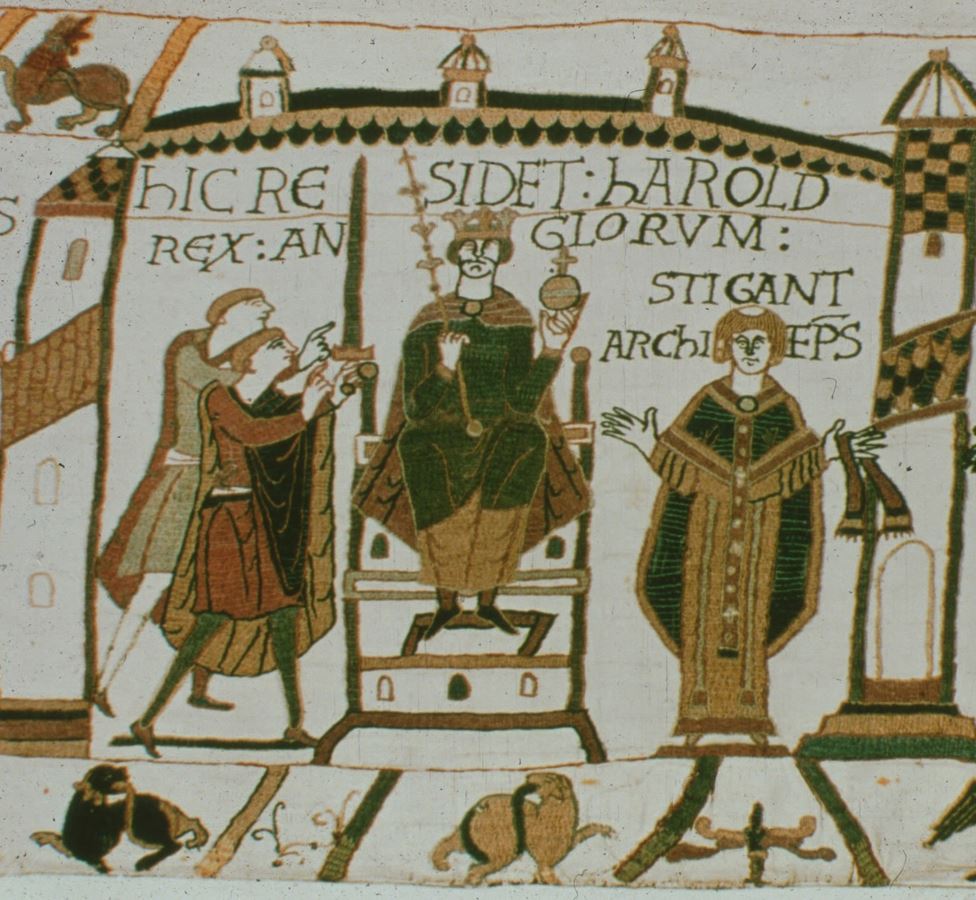 |
Pope Alexander IIc.1010 - April 21, 1073 |
 |
Born Anselm of Baggio and he may have studied under Lanfranc at Bec Abbey. He helped found the pataria, a movement aimed at reforming the clergy against the practices of simony (sale of appointments) and clerical marriage. Eventually named the Bishop of Lucca, he worked with Hildebrand to try to stop both of those practices. After the death of Pope Nicholas II in 1061, Anselm was elected Pope in the first election which was held solely among the cardinals without input from the Holy Roman Emperor or the people of Rome. In response, Emperor Heinrich IV named Cadalus of Parma as pope, who took the name Honorius II. Honorius eventually lost imperial support and is generally considered an antipope, which is referenced in After Hastings. In 1066, Alexander gave his blessing to an emissary from William of Normandy, blessing the proposed conquest of England. In After Hastings, Alexander II has sent Hildebrand to England as his legate following the defeat of William at Normandy. To Alexander and Hildebrand's way of thinking, England was a hot bed of simony and they had view William as the right man to replace the native English clergy with continental churchman who agreed with them, starting with Lanfranc of Bec. Although Alexander is one of Harold's antagonist in After Hastings, he does what he thinks is right and in his own mind he draws a distinction between Alexander II, who is the bishop of Rome and the spiritual leader of the Church, and Anselm of Baggio, the clergyman he spent most of his life being. In our own world, following William's successful conquest of England, Alexander continued to fight simony in England and across Europe, ensuring that priests whose appointment was questionable were investigated and if found innocent were re-invested with their powers by a papal legate rather than by the local lords. Those who were found guilty of simony were removed from their positions. Alexander's conflict over lay investiture with Henry IV would also set the stage for the investiture controversy which came to a head under his successor, Gregory VII. Alexander died on April 21, 1073. |

Return to cast of characters